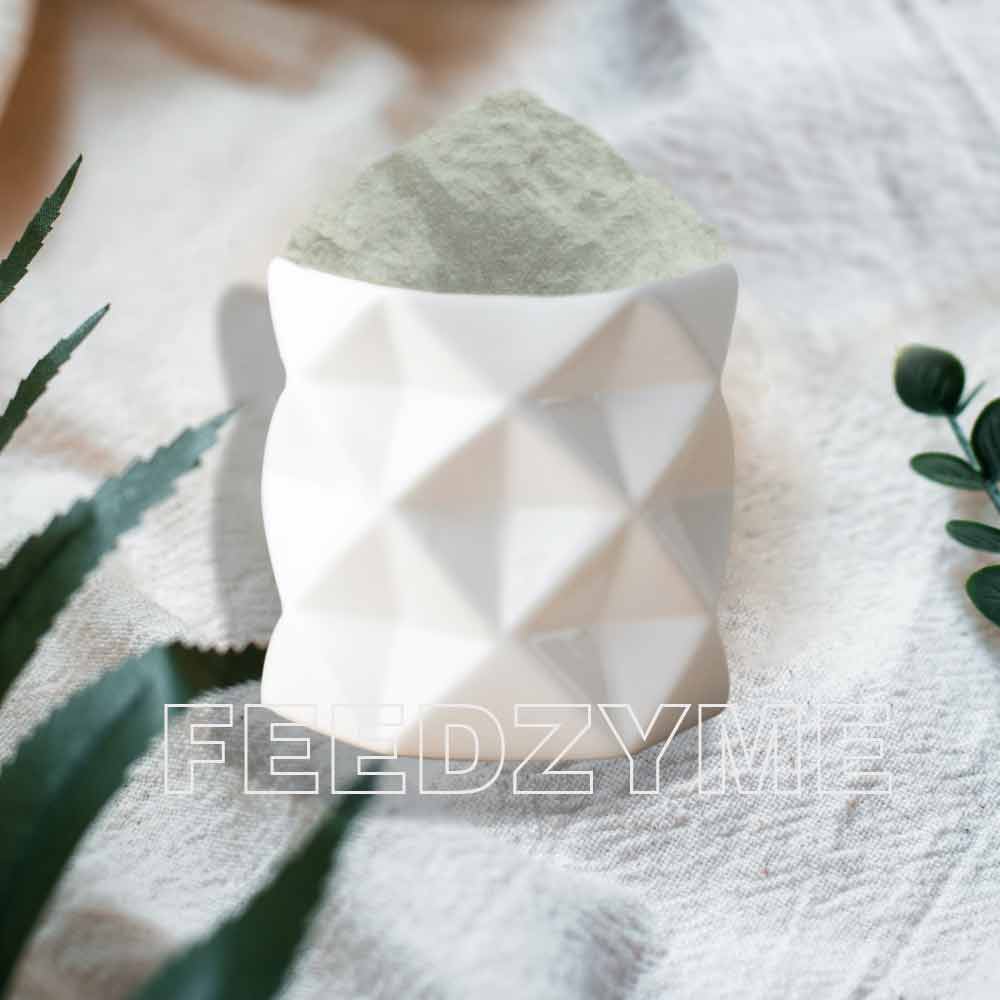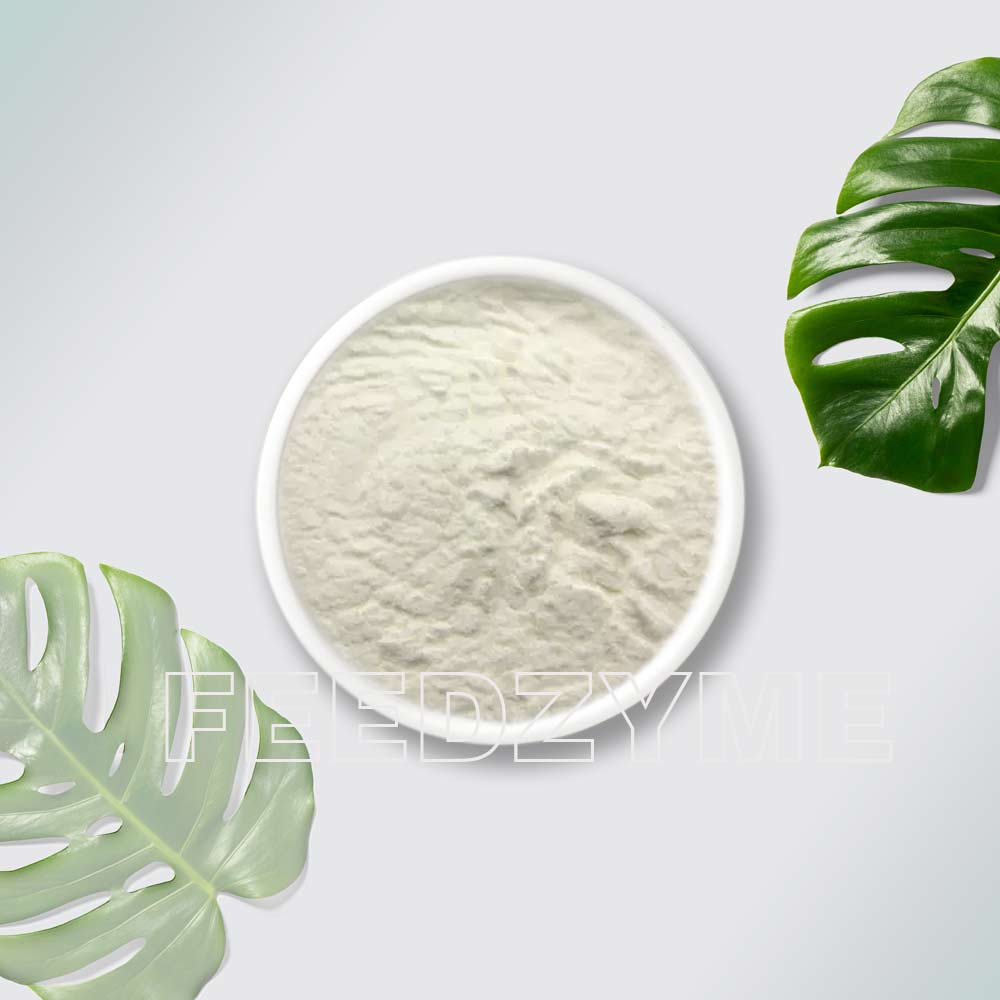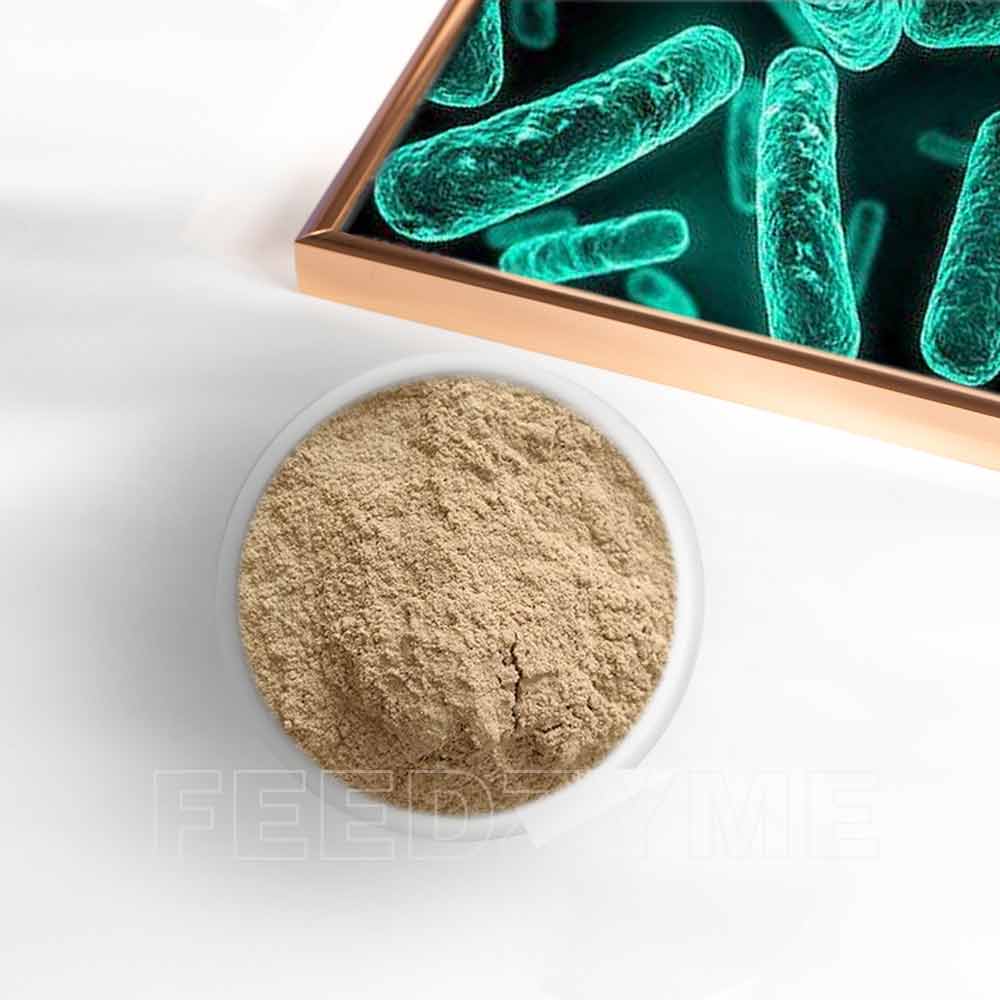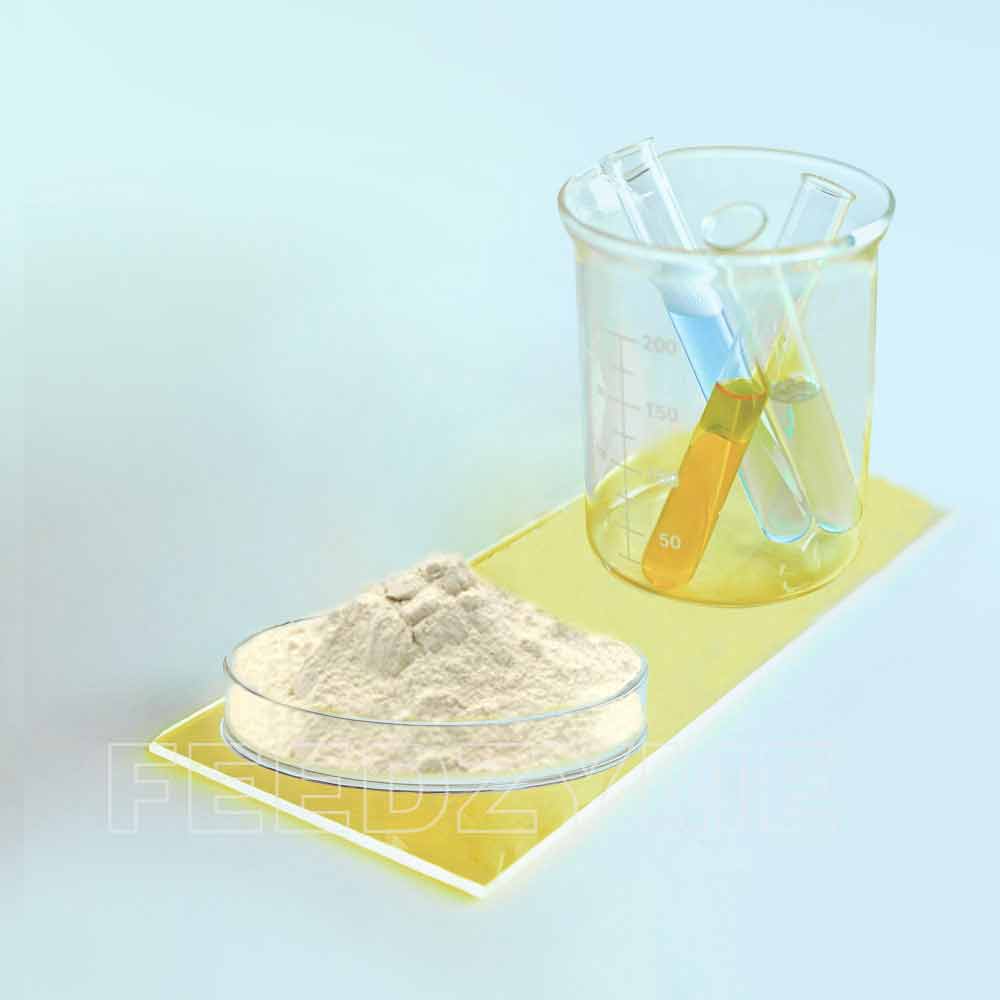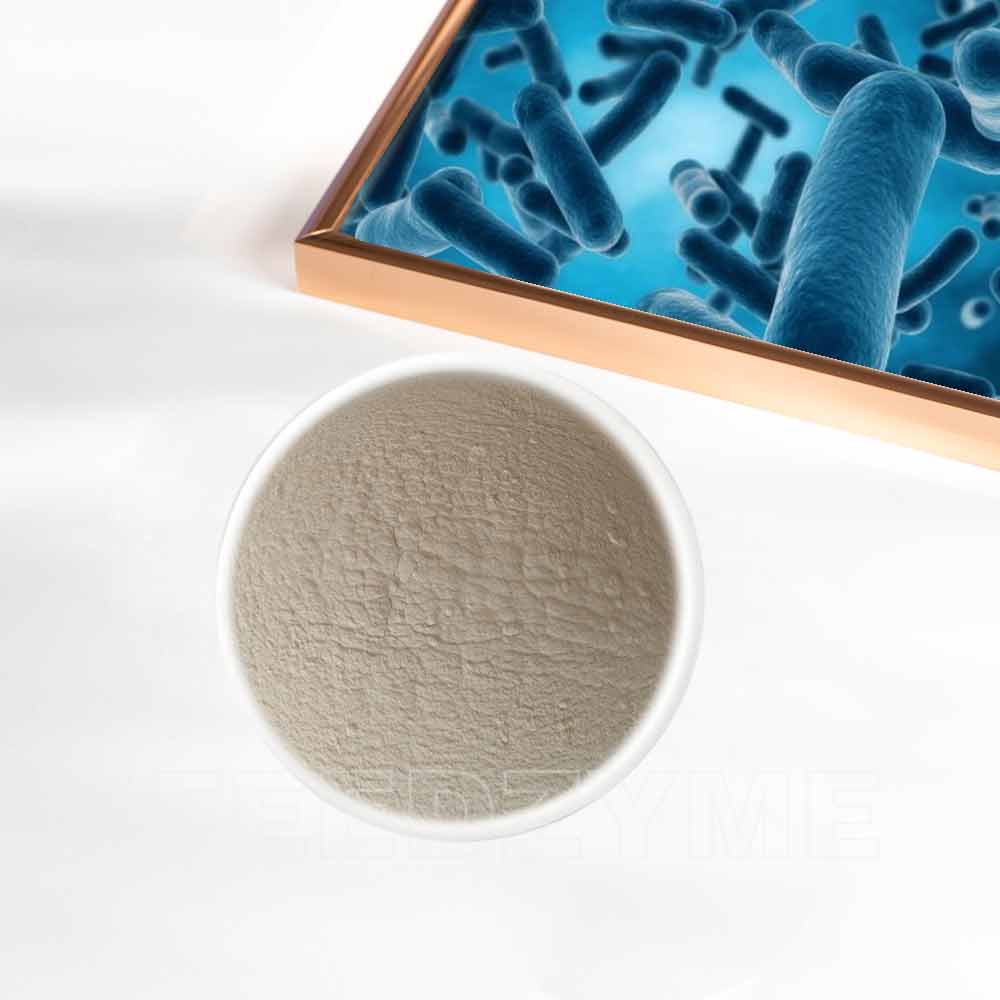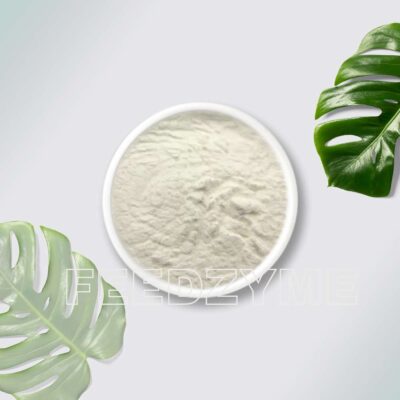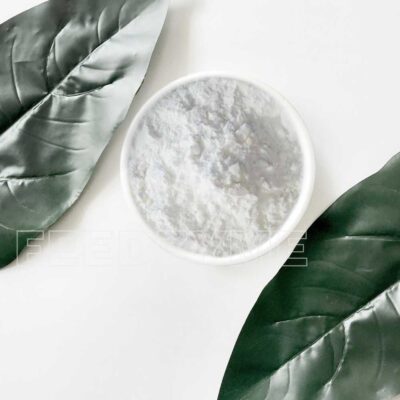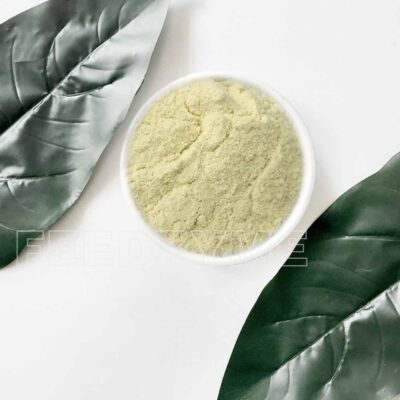Pectinase
Pectinases are a big group of enzymes that break down pectic polysaccharides of plant tissues into simpler molecules like galacturonic acids.
Categories: Food Additives, Food Enzymes
Product Description
Brief introduction
Pectinase, also called polygalacturonase, is a naturally occurring enzyme that breaks down pectin, which is a substance found in the cell walls of certain types of plants and fruits. Pectin helps ripening fruits hold their shape; as a fruit becomes overripe, the pectin breaks down into simple sugars and the fruit consequently gets soft. Related Reading >>>
Pectinase has many uses, including in pulp and paper production, brewing and wine-making, and food processing. It is also effective in detergents because it helps remove stains from fresh fruits, such as tomatoes and berries.

Function
1. To supply animal endogenous enzyme;
2. To reduce the content of non starch polysaccharides (NSP) and anti nutritional factors, improve the nutritive value of feed;
3. To lower the contents viscosity in digestive tract, increase the contact area of endogenous enzymes and feed, increase feed absorption and utilization rate.
4. To promote the decomposition of plant cell wall, release intracellular nutrient.
Mechanism
This product can catalyze plant intercellular substance (i.e. pectin) and hydrolyze to produce galacturonic acid and pectin acids, which is made of excellent strains through liquid fermentation and modern biology post-extraction technology.
Unit Definition
Acid Pectinase:
Under the conditions of 50 ℃ and pH 3.5, 1g (or 1ml) enzyme powder (enzyme liquid) catalyze pectin to hydrolyze and produce 1mg galacturonic acid in an hour, which is as a pectinase activity unit.
Alkaline Pectinase:
Under the conditions of 55 ℃ and pH 9.0, 1g enzyme powder catalyzes pectin to hydrolyze and produce 1ug galacturonic acid in one minute, which is as a pectinase activity unit.
Usage:
According to the application effect, 100 – 200 g/ton evenly mixed with feed.
Product Specification:
Appearance: light yellow powder
Enzyme Activity: 10,000 U/g
Shelf Life
Solid enzyme can be stored at room temperature for one year, the enzyme activity won’t be not less than 80%. At 5-10 ℃, solid enzyme activity won’t be not less than 90% after one-year storage.
Storage Conditions
It is recommended to be stored in the dry and cool environment, keep from sun and rain, strictly no toxic and harmful substances mixed.







